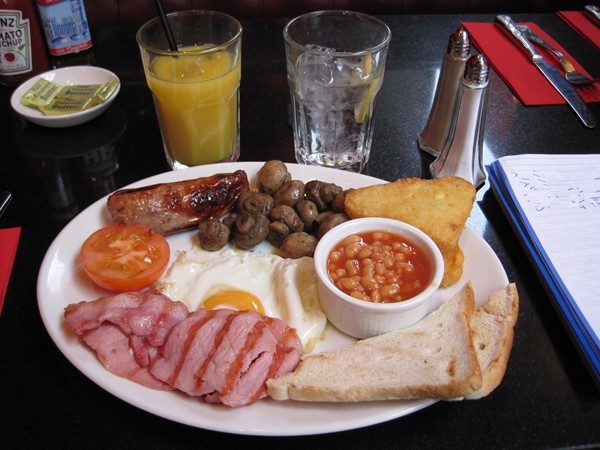There is, fortunately, nothing like a Full English Breakfast, like this one I had a few months ago in London:

Via reader EB, Times writer Cole Morton traveled around the country wondering why people still eat them:
Here, then, is proof that English bloodymindedness endures. Never mind anti-obesity campaigns, free fruit or the knowledge that the big plate of fatty crap is killing us, some people will just pile on more.
We’re addicted to salt and still eating for the hearty, manual labour of old, when most of our work now involves sitting down, says the social anthropologist Kaori O’Connor. The Full English was born at a time during the Victorian era when new forms of energy allowed us to move from two meals a day — mid-morning, and just before the sun went down — to beginning with an early cooked feast. This then became a symbolic meal.
“The full breakfast is the secular sacrament of Englishness,” says Dr O’Connor, author of The English Breakfast. “In the devout early Victorian period, the day would begin with morning prayers before breakfast, which was a civilised meal for a civilised country. In time, the prayers dropped away and breakfast became a sacrament. You ate it as an article of faith.”
The Breakfast Book by Georgina Hill, published in 1865, lists some “things most commonly served for family breakfast” in a country-house buffet. They include “anchovies, bloaters, brain cakes, caviare, cold tongue, devilled bones, dried sprats...” Surely only those who could afford feasts had this high ideal of breakfast.
“No. Everybody had it,” says O’Connor. “Breakfast was the meal that everybody began the day with, whatever their place in society and however meagre the portions.”
I write this eating a small bowl of Raisin Bran with 2% milk. But the next time I visit the U.K., I will have a Full English. Oh yes. I will. If only to remind myself why I only eat them there.